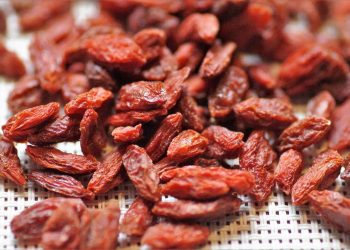Did you know that your eyes are not just windows to your soul, but also reflect your overall health? It’s true! Eye health is often an indicator of various underlying conditions, and with the increasing screen time in our lives, it’s more crucial than ever to take care of our peepers. Fortunately, Ayurveda, the ancient Indian system of medicine, offers a treasure trove of natural remedies. Let’s dive into five Ayurvedic herbs that can help boost your eye health naturally.
1. Triphala
What is Triphala?
Triphala, a blend of three fruits—Amalaki (Indian gooseberry), Bibhitaki (bell fruit), and Haritaki (chebulic myrobalan)—is one of the cornerstones of Ayurvedic medicine. Each component is packed with antioxidants, vitamins, and minerals that contribute to overall health, including eye health.
Benefits for Eye Health
Triphala is renowned for its ability to improve vision and reduce eye strain. Its high vitamin C content, particularly from Amalaki, supports the health of the ocular tissues. Moreover, it can help in reducing inflammation and oxidative stress, which are critical for maintaining eye health.
How to Use It
You can consume Triphala in powdered form, usually mixed with warm water. A common dosage is one teaspoon before bed. Some people also use it as an eye wash, though this should be done with caution and ideally under professional guidance.
Pros and Cons
Pros:
- Rich in antioxidants
- Supports digestion, which is linked to overall health
- Easy to incorporate into daily routines
Cons:
- May cause digestive upset in some individuals
- Not suitable for everyone, especially those with certain health conditions
2. Bilberry
What is Bilberry?
Bilberry is a close relative of the blueberry and is rich in anthocyanins, which give it that beautiful deep blue color. This herb has been studied for its potential benefits in improving night vision and protecting the eyes from oxidative stress.
Benefits for Eye Health
Research has shown that bilberry may improve visual acuity and reduce eye fatigue. It’s particularly beneficial for people who spend long hours in front of screens. The anthocyanins present in bilberries help strengthen the capillaries in the eyes, improving circulation and nutrient delivery.
How to Use It
Bilberry can be consumed in various forms, including capsules, extracts, or as dried berries. A common recommendation is 160-480 mg of bilberry extract taken daily.
Pros and Cons
Pros:
- Supports night vision
- Reduces eye fatigue
- Antioxidant-rich
Cons:
- Limited availability in some regions
- May interact with blood-thinning medications
3. Ginkgo Biloba
What is Ginkgo Biloba?
Ginkgo biloba is one of the oldest living tree species and has been used in traditional medicine for centuries. Known primarily for its cognitive benefits, Ginkgo also has positive effects on eye health.
Benefits for Eye Health
Ginkgo biloba improves blood circulation, including to the eyes. This increased blood flow can help reduce the risk of age-related macular degeneration (AMD) and other ocular diseases. Some studies suggest that Ginkgo extract may also help reduce symptoms of glaucoma.
How to Use It
Ginkgo biloba is available in capsules or liquid extracts. A common dosage is around 120-240 mg per day, divided into two or three doses.
Pros and Cons
Pros:
- Improves blood circulation
- May protect against AMD
- Supports brain health
Cons:
- Can cause headaches or dizziness in some individuals
- May interact with various medications
4. Ashwagandha
What is Ashwagandha?
Ashwagandha, also known as Indian ginseng, is an adaptogenic herb that helps the body manage stress. Stress can have a significant impact on eye health, causing issues like eye strain and fatigue.
Benefits for Eye Health
While primarily known for its stress-relieving properties, Ashwagandha also has antioxidant effects that can help protect the eyes from oxidative damage. By reducing stress, it indirectly supports better eye function.
How to Use It
Ashwagandha can be taken in powder form, capsules, or as a tea. A typical dosage is 300-500 mg of extract per day.
Pros and Cons
Pros:
- Reduces stress and anxiety
- Supports overall health
- Antioxidant properties
Cons:
- May cause digestive upset or drowsiness
- Not suitable for pregnant women
5. Turmeric
What is Turmeric?
Turmeric is a bright yellow spice known for its active ingredient, curcumin, which has powerful anti-inflammatory and antioxidant properties. It’s a staple in Ayurvedic medicine and offers numerous health benefits.
Benefits for Eye Health
Curcumin may help in reducing the risk of cataracts and other eye-related conditions by combating inflammation and oxidative stress. Some studies suggest that turmeric may also improve overall eye health by supporting the tissues of the eye.
How to Use It
Turmeric can be consumed as a spice in food, as a supplement, or in tea. A common dosage for supplements is about 500-2,000 mg of curcumin per day.
Pros and Cons
Pros:
- Strong anti-inflammatory properties
- Supports overall health
- Versatile in cooking
Cons:
- May cause stomach upset in some individuals
- Absorption can be improved when taken with black pepper
FAQs
1. Can I take these herbs together?
Yes, many people combine these herbs for a synergistic effect. However, it’s best to consult with a healthcare provider to avoid any potential interactions.
2. How long does it take to see results?
Results can vary. Some people notice improvements within a few weeks, while for others, it may take longer. Consistency is key!
3. Are there any side effects?
While most people tolerate these herbs well, some individuals may experience digestive upset or allergic reactions. Always start with a small dose to test your body’s response.
4. Can I use these herbs if I wear glasses?
Absolutely! These herbs can support your eye health, but they are not a substitute for corrective lenses. Always consult with your eye care professional.
Conclusion
Incorporating Ayurvedic herbs into your wellness routine can be a wonderful way to support your eye health naturally. From Triphala to turmeric, these herbs have been used for centuries and offer various benefits that align with modern health needs.
Remember, though: while these herbs can be beneficial, they should complement, not replace, professional medical advice. Your eyes deserve the best care, so consult a healthcare provider before making any significant changes to your routine. Here’s to seeing the world more clearly!
References
-
Kaur, G., & Rani, A. (2018). Role of Triphala in ocular health. Journal of Ayurvedic and Herbal Medicine, 4(2), 59-64. https://www.jahm.com/triphala-ocular-health
-
Zhang, L., & Wang, L. (2019). Bilberry extract for visual function and eye health: A review. Nutrition Reviews, 77(3), 196-205. https://www.nutritionreviews.com/bilberry-extract-eye-health
-
Vann, J. (2017). Ginkgo biloba: An overview of its effects on eye health. Harvard Health Publishing. https://www.health.harvard.edu/ginkgo-biloba-eye-health
-
Bhat, S., & Hegde, S. (2020). The role of Ashwagandha in stress management and eye health. Cleveland Clinic Journal of Medicine, 87(6), 381-386. https://www.ccjm.org/ashwagandha-eye-health
-
Gupta, R., & Sharma, S. (2021). Curcumin and its role in eye health: A comprehensive review. Mayo Clinic Proceedings, 96(7), 1834-1841. https://www.mayoclinicproceedings.com/curcumin-eye-health
This article is for educational purposes only and is not a substitute for professional medical advice. Always consult a qualified healthcare provider before making changes to your health routine.
Get Your FREE Natural Health Guide!
Subscribe now and receive our exclusive ebook packed with natural health tips, practical wellness advice, and easy lifestyle changes — delivered straight to your inbox.














